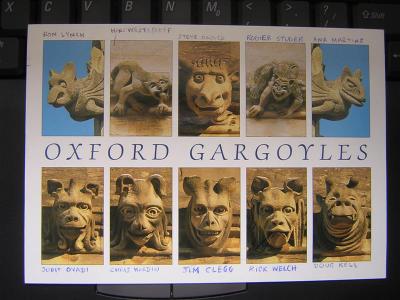here comes your new public school Life Science curriculum -- Hallelujah & Amen!
 This image has nothing to do with Natural Selection / Intelligent Design, but now that Vleeptron has apparently mastered posting images that don't look like sausages, we thought we'd toss this one on here: more Digital Virtual Non-Existent Toon Pixel Porn. It's not from the shocking depraved Grand Theft Auto/San Andreas.
This image has nothing to do with Natural Selection / Intelligent Design, but now that Vleeptron has apparently mastered posting images that don't look like sausages, we thought we'd toss this one on here: more Digital Virtual Non-Existent Toon Pixel Porn. It's not from the shocking depraved Grand Theft Auto/San Andreas.This one's from the videogame The Sims (for sim-ulation). Here's a couple of non-existent Sims fooling around without their non-existent clothes. Later in the videogame, the Population of Sim City will increase by 1 or 2 or maybe 3.
I hope Senator Hillary Clinton can do something about this horrible stuff, and then Americans will make her President in 2008 because she's really doing important stuff to fix the most important problems in the world today.
That's why she's not in Crawford, Texas this week, showing her support for Cindy Sheehan and her opposition to the War in Iraq. She'd like to be there -- Hillary is never afraid of political controversy -- but she's much too busy making sure our precious children can't see non-existent strings of zeros and ones having non-existent sex.
Okay, Vleeptron is back to the IMAX Science Documentary Censorship Thing ... where IMAX nature movies that mention Natural Selection are being banned from being shown in IMAX theaters in science education facilities -- museums, etc.
Farther back up the Food Chain, this means new IMAX nature movies can't get the financing they need because the paying audience (busloads of schoolkids) has shrunk, because the number of IMAX screens is shrinking.
The way around that, of course, is that future IMAX science movies just won't mention anything about Natural Selection/Evolution.
One interesting aspect of the Bush Administration's famous "No Child Left Behind" law is that every public school district in the USA (in order to conform to the law and keep receiving federal money) has had to re-write all its curricula in every subject.
Into this once-in-a-blue-moon national opportunity has leapt the Intelligent Design crowd. (They used to be Creationists, then Creation Science people. They keep changing their name, like my cousin the hot check artiste.)
Now every big public school district's science curriculum is being pressured bigtime to "teach the controversy" -- not to reject or deny Natural Selection, but to "balance" it by buying new textbooks that do mention Natural Selection, but also teach junior high and high school students about this other theory: Intelligent Design.
The temptation during the Bush years to laugh at this as a Local USA phenomenon -- our national politics are currently controlled and very heavily influenced by organized Christian fundamentalists, Bush's real and highly energized voter power base -- is great.
But Pat's Pub (currently communicating with Vleeptron on his wi-fi laptop in a rowboat on a large new Swiss Lake) has noted that there's a movement of Swiss parents yanking their kids out of public schools whose science classes teach Evolution. It's not a local USA thing.
Here's Intelligent Design in New Zealand.
I'm not going to Prove or Disprove or Yea or Nay any kind of Science Thing here today. Vleeptron Special Holiday, Today Only: Believe anything you want. Believe Jennifer Lopez has a doctorate in Galois Theory from Cambridge. Vleeptron doesn't care. Believe swans can sing Eurovision Pop Songs. Fine with us today.
But down below, you'll see that one Core Scientific Fact of Intelligent Design is that the Earth is no older than 10,000 years. However the Earth got here, that's when it got here: Sometime between 6,000 and 10,000 years ago.
Compare that with the Natural Selection folks, most of whom are in general agreement that the Earth is about 4,500,000,000 years old, and claim they have compelling scientific evidence (computed by measuring radioactive isotope proportions in rocks believed to have been formed soon after Earth became a planet) to support that.
So, after reading this (and tons and metric tons of other articles about the Intelligent Design/Natural Selection back-alley knife fight going on all over Christendom), please Leave a Comment that starts by Checking One:
I believe the Age of Planet Earth is
|__| between 6,000 and 10,000 years
|__| about 4,500,000,000 years
|__| other (please specify)
The New Zealand Herald
Saturday 27 August 2005
Intelligent design --
coming to a school near you
[photo caption:] David Jensen says the evolutionists' perspective relies on unproven scientific facts and theories.
By Chris Barton
Science teachers say it has no place in the classroom.
Christian educators say children shouldn't be denied alternative views.
Science teachers retaliate that it's not science, it's religion behind a mask and they don't want a bar of it. Christian educators argue they can teach it alongside traditional science, so what are science teachers so afraid of?
Science teachers' blood begins to boil. "It's not science."' they fume.
"It" is "intelligent design" -- a challenge to the theory of evolution described by some as creationism in disguise. But it's a challenge that's garnering support from high places.
"I think that part of education is to expose people to different schools of thought," United States President George W. Bush said this month. "If you're asking me whether or not people ought to be exposed to different ideas, the answer is yes."
The topic is also the subject of court action in Pennsylvania, taken after the Dover Area School Board decided to revamp its biology curriculum to include intelligent design.
In December, 11 parents sued the district and its board members, claiming they were bringing God into the science class. The case is being watched closely by 21 states across America facing controversies over how evolution is taught to high school students.
The debate also has been simmering in New Zealand. Chief proponents of intelligent design here include Investigate magazine editor Ian Wishart and Auckland University School of Engineering associate professor Neil Broom, author of How Blind Is a Watchmaker?
The argument was rekindled last week when 500 New Zealand schools received unsolicited DVDs and workbooks from the Christian-based Focus on the Family organisation.
The material comes via the Centre for Science and Culture (CSC), a division of the Discovery Institute, a religion-based conservative think-tank in Seattle. It criticises Darwinism and promotes the idea of an "intelligent designer" outside the laws of nature to explain the intricate complexity of living organisms.
"Intelligent design people will tell you it doesn't mean there was a God. It just means something intelligent designed it. I'm much more comfortable saying God's there and he made it," says Michael Drake.
The principal of Carey College looks pleased with his answer. It avows his faith. Drake exudes the unshakeable rightness, some might say smugness, of a committed Christian.
The private school in Panmure teaches a literal interpretation of creation found in Genesis alongside the teaching of evolution. Drake believes in a young Earth -- one that's about 6000 to 10,000 years old because that's what you get if you add up all the begats in the Bible.
Questions of carbon dating are not a problem. "It's perfectly possible to say God created the world at a point in time and at that point in time it [the Earth] was fixed with so many carbon 14 and so many ordinary carbon molecules -- why not? God is God."
It's the sort of statement (given ample evidence that the world is at least 4.6 billion years old) that gets science teachers spluttering into their coffee.
"There are no geologists I am aware of who think the world is only 10,000 years old. That's the most fatuous idea one has ever come across," says Martin Hanson, a science teacher of 40 years and author of nine textbooks including Apes and Ancestors II.
Drake is unbowed, pointing to the swag of science awards the school has won. "Our kids will leave this school understanding evolutionary theory and creation theory and being able to work with both right through the science syllabus."
David Jensen, principal of Immanuel Christian School, holds a similar view.
"People have to see that evolution is as much a religious faith-based position as is creationism. Our creationist beliefs rest on faith in God as creator. An evolutionist perspective is just as religious.
"It relies on unproven scientific facts and theories - that's why it's called a theory of evolution. It's not the fact of evolution - it's called a theory for good reason. No one can prove it."
Science teachers splutter in unison with incredulity. "These people talk about evolution as a theory in crisis -- they don't understand the word theory," says Alan Munro, head of science at Southland Boys' High.
"In layman's terms a theory is just a guess or something unproven, but in science a theory implies something that has been proven and generally accepted as true."
Hanson agrees, pointing to atomic theory. "No chemist has the slightest doubt about the existence of atoms. They're using theory in quite a different sense -- it's a framework of knowledge and ideas which has great predicative value and is solidly based."
Jensen's faith is also unshakeable. "At the very least it's intellectually honest to give a reasonable amount of attention to the deficiencies of the theory of evolution as well as having a look at other competing theories, creationism being one."
Jensen is not as hard-line as Drake in terms of the age of the Earth. He's comfortable putting that aside as "a bit of a grey area." He claims evolutionists are fixated on the Earth being millions of years old because that is what evolution requires.
His main problem with evolution lies with its notions of chance mutations and accidental events creating complex forms of life. He rejects more figurative interpretations of the Bible which allow some Christians to see evolution as part of God's plan.
"It makes no sense. Why would God use a process of death and random events to create when he can create things as good?" And he sees it as inconsistent that "a good God" used millions of years of death and suffering.
For Jensen such an idea doesn't fit with Genesis, where it says, "God created and it was good." And with the description of the Garden of Eden -- "an amazing place where animals were not ripping each other apart and devouring each other."
The intelligent design argument is more sophisticated. It doesn't retreat to a belief in the Bible as its founding truth. And it doesn't directly refer to God. But it shares with creationists the same difficulty in accepting the role of chance, accident or randomness in explaining the origin of life.
VLEEPTRON NOTES: Yeah, yeah, but click on any of these Intelligent Design site links, and see how close -- a page up or down scroll or one click -- God and the Bible are.
Drake sums up the problem for all. "Evolutionary theory says if there is a God, then he has not made things by means of design, purpose or, in the creationist point of view, with immediacy."
Hanson is scathing. "Intelligent design people are nice people, but they have difficulty in confronting complex realities -- they need simple truths. There are a tiny number of biologists who do have problems with evolution, but they are such a minute, microscopic rump that they are hardly worth considering."
The Privileged Planet, one of a set of three DVDs distributed by Focus on the Family, sets out to show through maths and astronomy that purpose and design are everywhere.
The Earth, rather than being an inconsequential, chance speck in a vast universe, is the perfect viewing platform from which to appreciate God's handiwork. Similarly it's hard to accept that humans might not be the special objects of God's creation but simply a product of natural selection brought about by "numerous successive slight modifications".
Enter Icons of Evolution to cast doubt on the formulation of Charles Darwin's theory. Munro, who has assessed some of the DVDs, is annoyed by its bias and use of outdated information. "They say 'here was an error that was made back in the 1860s' and, therefore, because of this error the whole of evolution is wrong."
He points out the nature of science is to test theories for validity and be prepared to accept the theory can be proved false. "You come up with a theory and later evidence changes the story and we have to do a rethink, but we've never found anything which totally disproves evolution."
The material, Munro thinks, should probably be returned to sender. But he's toying with the idea of using some of it in a lesson on testing whether evidence is valid. "If it was going to go to the library, I'd file it under something like fairytales and fables -- it's not scientific."
Intelligent design's king hit argument against evolution is found in the third DVD Unlocking The Mystery of Life. It claims to have found a scientific principle ("irreducible complexity") which proves certain structures could not have been produced by evolution.
The argument asserts that structures like the bacterial flagellum (a whip-like motor found in single cell organisms) and the human eye are so enormously complex that if you take them down into their constituent parts, the simpler bits and pieces don't have a function.
Take one part away and the eye or the flagellum doesn't work. In other words, it's irreducibly complex and must have been designed.
While evolution doesn't have a clear explanation for the development of the eye or the flagellum, biologists say they can show that both are not irreducibly complex.
"As soon as you look at bacterial flagellum and find that the various structures that go to make it up do have a function, and look at the complexity of the camera eye and find that there are much simpler versions available, the argument gets pulled to pieces," says Alison Campbell, a former secondary school science teacher and now senior lecturer in biology at Waikato University.
Campbell, who helps run the Evolution for Teaching website, points to a paper -- The Flagellum Unspun -- which claims to undo some of the probability equations used to make the irreducible complexity case.
Intelligent design may not be in our science curriculum, but it's not exactly out, either. The Ministry of Education's national administration guidelines don't place any restrictions on its teaching. Nor do they specifically restrict the teaching of young Earth creation or theistic evolution. So does the science curriculum allow for alternative theories to evolution to be taught?
"Schools and teachers have a responsibility to select theories widely accepted by the scientific community," says the ministry's curriculum manager Mary Chamberlain. "A full exploration of these theories should include a consideration of challenges that have been made to them."
Even if the challenges are non-scientific? "We are not suggesting that teachers teach it as accepted science," says Chamberlain. "We are suggesting that challenges to accepted scientific understandings should be considered in science lessons" - such as in the "Making sense of the nature of science" strand.
Southland High's Munro rejects the interpretation of the syllabus. "A science controversy has to have science on both sides."
Campbell is not impressed, either: "It's a non-controversy as far as the wider scientific community is concerned." There is only one theory -- evolution -- and to suggest otherwise is to fall into the trap of misunderstanding what a scientific theory is.
She says neither young Earth creationism nor intelligent design offer any reasonable challenge to evolutionary thinking.
"It's the thin edge of the wedge -- as soon as you introduce intelligent design into the classroom in any guise, then it's in the classroom and it gives it some legitimacy and I don't think that legitimacy is warranted. It's not science."














